News archive for 2019
Mon, 04/29/2019 | UW News
Patterns of compulsive smartphone use suggest how to kick the habitResearchers at the University of Washington conducted in-depth interviews to learn why we compulsively check our phones. They found a series of triggers, common across age groups, that start and end habitual smartphone use. The team also explored user-generated solutions to end undesirable phone use. The results will be presented May 7 at the 2019 ACM CHI conference on Human Factors in Computing Systems in Glasgow, Scotland.

Mon, 04/29/2019 | College of Engineering
Peer-to-peer educationThrough the College’s new Engineering Peer Educator program, experienced undergraduates help first-year undeclared students transition into the UW Engineering community.
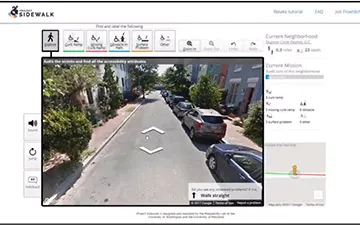
Thu, 04/18/2019 | UW News
Project Sidewalk helps users map accessibility around Seattle, other citiesComputer Science & Engineering researchers have led the development of Project Sidewalk, an online crowdsourcing game that lets anyone with an internet connection use Google Street View to virtually explore neighborhoods and label curb ramps, missing or rough sidewalks, obstacles and more.

Mon, 04/15/2019 | UW News
Synthetic peptide can inhibit toxicity, aggregation of protein in Alzheimer’s disease, researchers showIn a paper to be published this week in the Proceedings of the National Academy of Sciences, Daggett and co-authors announce that they’ve developed synthetic peptides that can target and inhibit the small, toxic protein aggregates that are thought to trigger Alzheimer’s disease. Their synthetic peptides, which are designed to fold into a structure known as an alpha sheet, can block aggregation of amyloid beta, a brain protein, at its earliest and most toxic stages – as shown by experiments in human neural cell cultures, in mice and the common laboratory worm Caenorhabditis elegans. The results indicate that synthetic alpha sheets could form the basis of therapeutics to clear these small, toxic aggregates in people.
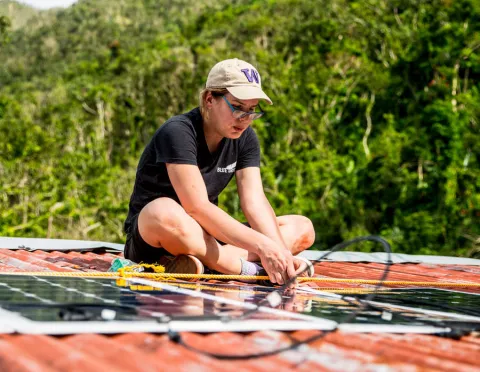
Wed, 04/10/2019 | Clean Energy Institute
Lilo Pozzo Recognized for Outstanding Leadership in Clean Energy EducationLilo Pozzo, the Weyerhaeuser Endowed Associate Professor of Chemical Engineering, was recognized by the Clean Energy Education and Empowerment Initiative (C3E) for outstanding leadership in education. Pozzo was one of eight honorees at C3E’s annual Women in Clean Energy Symposium.
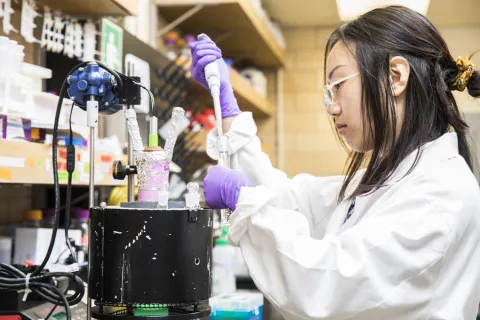
Mon, 04/08/2019 | UW News
Water disinfection can help prevent the spread of antibiotic resistant bacteria, but what about their genes?A team of UW civil and environmental engineering researchers tested how well current water and wastewater disinfection methods affect antibiotic resistance genes in bacterial DNA. While these methods work well to deter bacterial growth, they had varied success in either degrading or deactivating a representative antibiotic resistance gene.
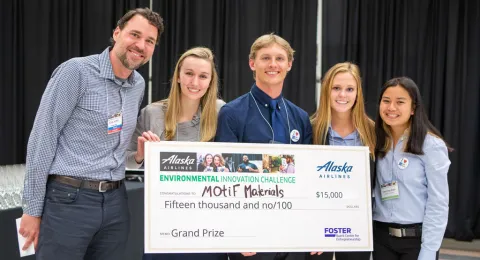
Thu, 04/04/2019 | UW Foster Blog
Students Impress at 2019 Alaska Airlines Environmental Innovation ChallengeMechanical Engineering's MOtiF Materials team won the grand prize at the 2019 Alaska Airlines Environmental Innovation Challenge (EIC). ElectroSolar Oxygen (Chemical Engineering, Business) took home the Clean Energy Prize, while AeroSpec (Mechanical Engineering, Chemical Engineering, Electrical & Computer Engineering, Chemistry) and NanoPrint (Business, Bioresource Science and Engineering, Mechanical Engineering) won the Judges Also Really Liked (JARL) award.

Wed, 04/03/2019 | UW News
UW virtuoso of mobile sensing technology receives ACM Prize in ComputingShwetak Patel, professor of Computer Science and Engineering and Electrical and Computer Engineering, was awarded the 2018 ACM Prize in Computing. He has created a system for monitoring energy and health that is affordable and accurate enough for widespread use.
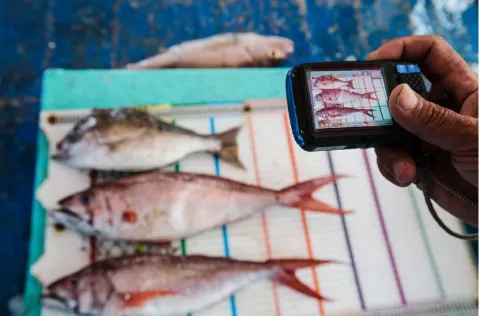
Wed, 04/03/2019 | The Wall Street Journal
How many fish are there in the sea? AI can find the answerECE professor Jenq-Neng Hwang is using cameras, satellite imagery and computers to better understand the health of global fish stocks, as well as prevent illegal fishing (Note: This story may be behind a paywall).
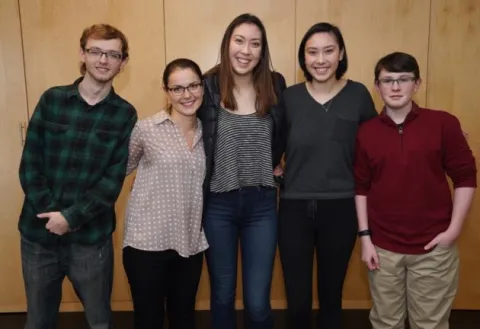
Wed, 03/27/2019 | GeekWire
UW students rely on input from professor’s son to create prototype for app that eases panic attacksBioengineering and electrical engineering seniors developed an app to help people who experience panic attacks.

Thu, 03/21/2019 | UW News
UW, Microsoft, PNNL establish new Northwest Quantum Nexus for a quantum revolution in science, technologyThe University of Washington, the Pacific Northwest National Laboratory and Microsoft Quantum announced this week that they have joined forces to bring about a revolution in quantum research and technology. The new Northwest Quantum Nexus aims to develop a quantum-fluent workforce and economy in the Pacific Northwest region of the United States and Canada.
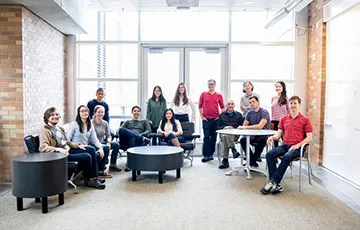
Thu, 03/21/2019 | UW News
With a 'hello,' Microsoft and UW demonstrate first fully automated DNA data storageUW and Microsoft researchers have demonstrated the first fully automated system to store data in manufactured DNA, a key step in moving the technology out of the research lab and into commercial data centers. DNA offers a promising solution for storing the exploding amount of data the world generates each day.

Fri, 03/15/2019 | UW Foster Blog
Student Finalists Revealed for 2019 Alaska Airlines Environmental Innovation ChallengeTwenty-one student teams will present their approaches to solving environmental problems at the competition finals hosted by the UW Foster School’s Buerk Center for Entrepreneurship. Engineering students are involved in an overwhelming majority of teams. Read about the finalist teams that will compete on April 3.

Wed, 03/13/2019
Mourning the loss of Vikram JandhyalaVikram Jandhyala, UW vice president for innovation strategy and Electrical & Computer Engineering faculty member, was an innovator in every sense of the word.
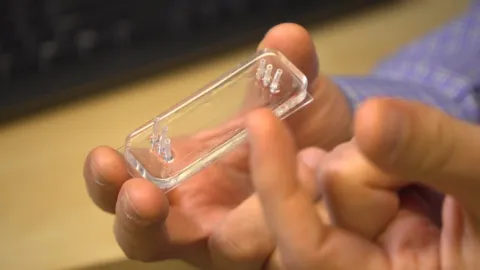
Tue, 03/12/2019 | UW News
New method to assess platelet health could help ER doctorsDepartment of Mechanical Engineering researchers are part of a team that has created a novel system that can measure platelet function within two minutes and can help doctors determine which trauma patients might need a blood transfusion upon being admitted to a hospital.

Tue, 03/12/2019 | UW News
Eight postdoctoral researchers at the University of Washington receive awards from the Washington Research FoundationCongratulations to Samuel Bryson, a postdoctoral researcher in the Department of Civil & Environmental Engineering, and Jue Wang, a postdoctoral researcher in both the College of Engineering and the School of Medicine for being named Washington Research Foundation Postdoctoral Fellows.
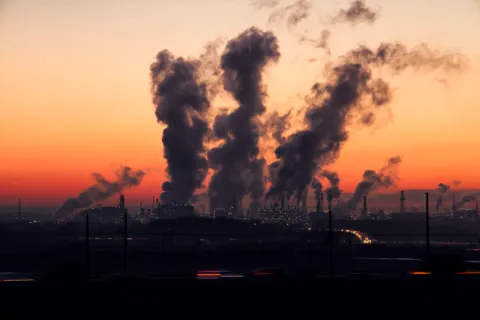
Mon, 03/11/2019 | UW News
Black and Hispanic Americans bear a disproportionate burden from air pollutionBlack and Hispanic Americans bear a disproportionate burden from air pollution generated mainly by non-Hispanic white Americans, according to new research from a team led by the University of Washington and the University of Minnesota.
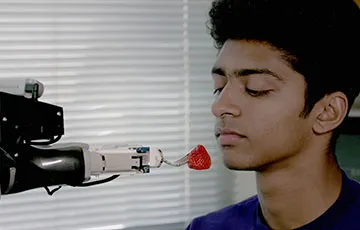
Mon, 03/11/2019 | UW News
How to train your robot (to feed you dinner)CSE researchers are working on a robotic system for adults who need help eating.

Thu, 03/07/2019 | UW Foster Blog
Student Ideas Shine at Hollomon Health Innovation Challenge
UW Engineering student teams received rave reviews and prize money to continue development of their health innovation ideas. Twenty-two finalist teams competed at the 2019 Hollomon Health Innovation Challenge hosted by the UW Foster School’s Buerk Center for Entrepreneurship. Among the UW prizewinners:
Nanodropper (BioE, pharmacology, medicine) won the grand prize for their affordable universal eye dropper that saves patients money and reduces wasted medication. Pulmora, (BioE) was rewarded for their emergency ventilator that most people could use to help someone who has stopped breathing. Judges also really liked (JARL) prizes went to DopCuff (ME, ECE, CSE, MSE) for their device to facilitate accurate blood pressure readings in heart disease patients and Insulin Anywhere (BioE) for their portable device to enable diabetic patients to treat themselves for possibly longer than a week following a natural disaster.
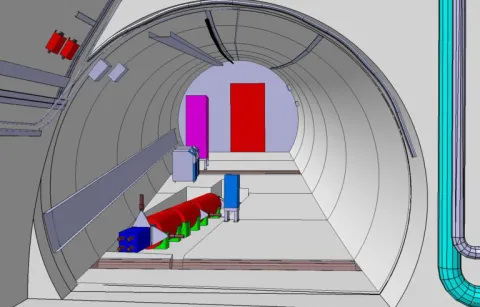
Wed, 03/06/2019 | UW News
FASER detector at the Large Hadron Collider to seek clues about hidden matter in the universeA team from the Mechanical Engineering Department joins other UW researchers for the Forward Search Experiment (FASER) into dark matter.
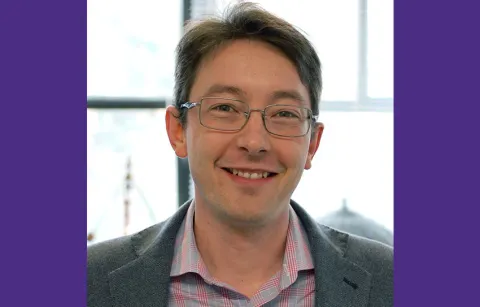
Tue, 03/05/2019 | SIAM News
ME faculty wins SIAG/CSE Early Career PrizeME Associate Professor Steven Brunton won the 2019 SIAM Activity Group on Computational Science and Engineering Early Career Prize. The award recognizes Brunton for his significant contributions to a broad range of techniques for, and applications of, data-driven analytics, control theory, sparse sensing, and reduced order modeling.

Fri, 03/01/2019
Remembering dean and chair emeritus Dale CarlsonAt the age of 94, dean and CEE chair emeritus Dale Carlson passed away. During his time at UW, Carlson served as chair of Civil & Environmental Engineering from 1971-1976 and dean of the College of Engineering from 1976 to 1980.
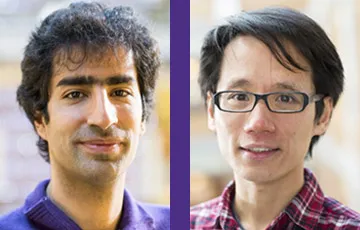
Fri, 03/01/2019 | UW News
CSE faculty win Sloan FellowshipsShayan Oveis Gharan and Alvin Cheung, both assistant professors in the Paul G. Allen School of Computer Science & Engineering, have been awarded early-career fellowships from the Alfred P. Sloan Foundation. The fellowships honor those early-career researchers whose achievements mark them among the next generation of scientific leaders.
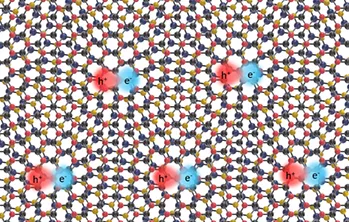
Mon, 02/25/2019 | UW News
It’s all in the twist: MSE's Xu and his team create a unique platform to study quantum optical physicsMSE's Xiaodong Xu and a team of researchers have developed a new system to trap individual excitons.
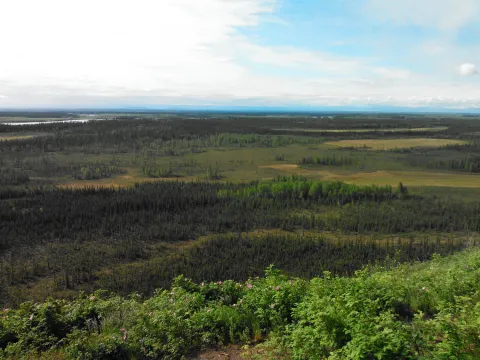
Mon, 02/04/2019 | UW News
Early spring rain boosts methane from thawing permafrost by 30 percentA University of Washington-led team has found a new reason behind increased methane emissions from a thawing permafrost bog in Alaska: Early spring rainfall warms up the bog and promotes the growth of plants and methane-producing microbes. The team showed that early precipitation in 2016 warmed the bog about three weeks earlier than usual, and increased the bog's methane emissions by 30 percent compared to previous years. These results were recently published in Geophysical Research Letters.